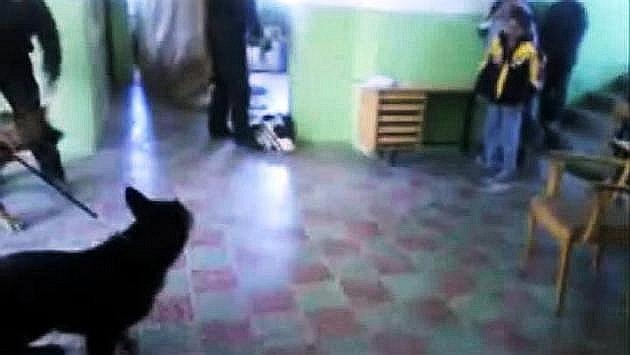Slovak psychiatrist says crimes against Romani boys considered less outrageous than if they had been white

The eduRoma civic association has reached out to several experts in the fields of psychiatry and psychology in connection with the case of police officers in Košice, Slovakia who bullied and humiliated Romani children. The association asked the experts to comment on the content of video recordings of the officers abusing the boys.
A judge has refused to enter the video footage into evidence, stating that it was illegally acquired, and acquitted 10 officers two weeks ago for lack of evidence. They verdict has yet to take effect and the prosecutor has appealed.
Vlado Rafael, the director of eduRoma, admits that he was shocked by the court’s decision, but says he did not want that to be the end of the matter. "We wanted to know what influence on the psychology of the victims this verdict might have and what experts believe the officers’ behavior indicates," he said.
In a press release, eduRoma has published statements by the Slovak experts whom they reached for comment. These include Jozef Hašto, a psychiatrist and winner of the White Raven Prize (Bílá vrána); Jana Plichtová of the Psychology Department at the Philosophy Faculty of Comenius University in Bratislava; Miron Zelina of the Pedagogy Faculty of Comenius University in Bratislava; and the psychologist Gabriel Bianchi.
"Such an experience could leave these children with the tendency to feel anxious, mistrustful, and powerless, or with the tendency to want to take revenge against adults and the institutions the abusive adults represent," Hašto said. "For those children who are less resilient, such experiences could result in psychological or psychosomatic disorders."
Plichtová said she could not ignore the feeling that this scandal has pointed out one of the tolerated manifestations of racism in Slovakia, and she called the behavior of the officers in the video shameful. "A crime committed against Romani boys prompts less compassion and indignation (if it prompts any at all) than a crime committed against white children does. It is highly likely that the judge’s opinion is a kind of tax this society is paying for this tolerated, widespread racism," she said.
"They abused minors who could not defend themselves effectively, who didn’t know how, they abused their institutional power and collectively participated in an activity that is contrary to the law, contrary to the mission of the institution of the police itself, and contrary to police regulations. Simply put, they have usurped the right to punish these boys. … If we fail to protect the rights of Romani children, then we are endangering respect for the rights of all children. Justice and the law are indivisible," Plichtová said.
Zelina pointed out that an incident that is evidently evil is now going unpunished. "From this decision it will be but a small step toward the ratcheting up of aggressive behavior by others who say to themselves, ‘A good defense attorney will get us out of it’," he said.
Psychologist Ivan Lukšík is inclined toward the opinion that this was a systemic failure and places it in the context of an experiment conducted by the American psychologist Philip Zimbardo, who researched the dissemination of evil in situations where someone is in the position of a guard and others are in the position of prisoners. Lukšík said the situation that played itself out at the police station in Košice can only happen when officers are able to disrespect the rights of children and of citizens to dignified treatment irrespective of whether they are non-Romani or Romani, when there is no monitoring of what takes place during such interrogations, and when the system gives officers the certainty that even when they perform such sophisticated wrongdoing, they will be protected.
Gabriel Bianchi also commented on the verdict. His conclusion is that contemporary society is so submerged in the commission of a multi-layered violence that it almost does not perceive it as such.
"We live in a cultural and social space that is full of violence. We have an unbearably high tolerance level for violence," Bianchi said.
On 27 February the District Court in Košice acquitted the officers (most of whom had stopped working for police in the interim) of the charges of abusing the powers of a public official in the case of the bullying of the six Romani boys. At a police station in 2009 the officers forced the boys to strip, to kiss each other, and to slap each other.
The officers recorded the entire incident on a mobile telephone. The recording was then published by the Slovak daily Deník SME online.